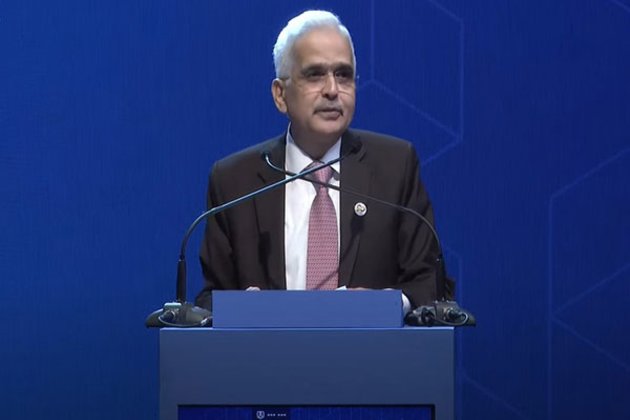Rising global debt is a concern, significant spillover risks for Emerging Market Economies: RBI Governor

New Delhi [India], September 13 (ANI): The Reserve Bank of India Governor Shaktikanta Das cautioned the world on the rising global debt, which has surged to a staggering USD 315 trillion, equivalent to 333 per cent of global GDP in 2024.
During a speech at the ‘Future of Finance Forum 2024’ on Friday in Singapore, the governor highlighted that this unprecedented level of debt poses significant risks, particularly for emerging market economies (EMEs) and low to middle-income countries, which are increasingly vulnerable to financial instability.
Das said, “At these levels, the debt overhang poses significant spillover risks to EMEs. In particular, the low income and some middle-income countries are very vulnerable. Coexistence of high levels of debt and elevated interest rates can feed a vicious cycle of financial instability through impairment of government and private-sector balance sheets”.
He stated that the current fiscal landscape is further complicated by rising fiscal deficits, which are now higher than pre-pandemic levels. Das highlighted that with 88 economies entering election cycles in 2024, the scope for fiscal consolidation appears limited, making it crucial for countries to manage their debt effectively to avoid exacerbating financial risks.
“There also appears to be little scope for improvements in fiscal aggregates, given the fact that 2024 – the Great Election Year – is seeing 88 economies going into election cycles” he said.
The RBI Governor also pointed out that the ongoing geopolitical tensions and supply chain disruptions have increased risk aversion among investors, leading to increased cross-border trade restrictions.
According to governor this environment of uncertainty requires prudent monetary policy management by central banks and proactive supply-side measures by governments to mitigate potential fallout.
“Such a scenario is filled with potential to create a protracted period of economic fragmentation and reduced global growth. Revival of multilateralism and coordinated policy action can mitigate the severity of this situation,” Das added.
He called for a collective effort to address these challenges, advocating for strengthened multilateral development banks (MDBs) to tackle shared global issues. He also underscored the importance of international cooperation in achieving sustainable economic growth and financial stability, urging nations to work towards a unified future for all. (ANI)



